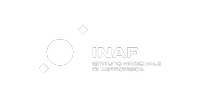SKADS
Sito web: www.skads-eu.org
Abstract: The Square Kilometre Array (SKA) represents the future of world radio astronomy. When completed in the second half of the next decade it will be able to scan and map the sky with a sensitivity ~100 times greater than is currently possible. It will be a distributed array and its collecting elements will be connected as an interferometer to deliver resolutions from arcminutes to milliarcseconds.
The SKA's frequency coverage will extend from ~0.1 to ~20 GHz, realised probably in two frequency bands involving different collector technologies: low, ~0.1 GHz to ~1.4 GHz (the main concern of this Design Study) ; and high, ~1.4 GHz to ~20 GHz. In the low band, the field-of-view will be sufficient to allow a range of `all-sky' surveys. In the high band, the resolution will complement that of the James Webb Space Telescope (JWST) and the Atacama Large Millimetre Array (ALMA). The SKA is also a real-time VLBI instrument with baselines extending across several thousand km, hence it will deliver angular resolutions up to two orders-of-magnitude greater than in any other band. The sensitivity of the SKA means that, for the first time, there is a high probability that an object discovered in any other waveband can also be studied in the radio band.
Dettagli tecnici:

